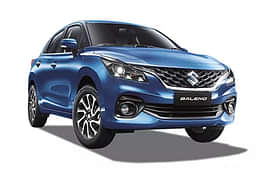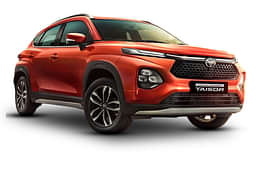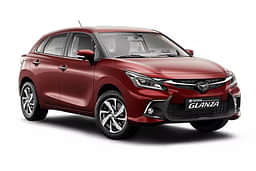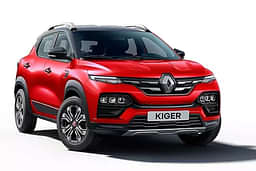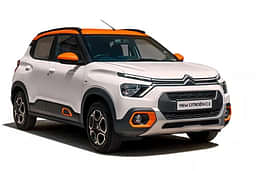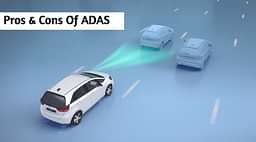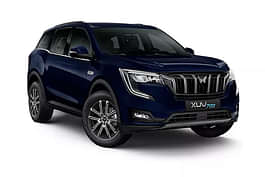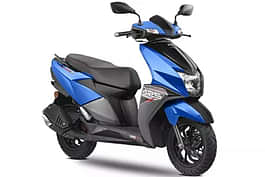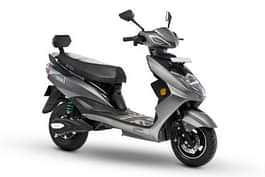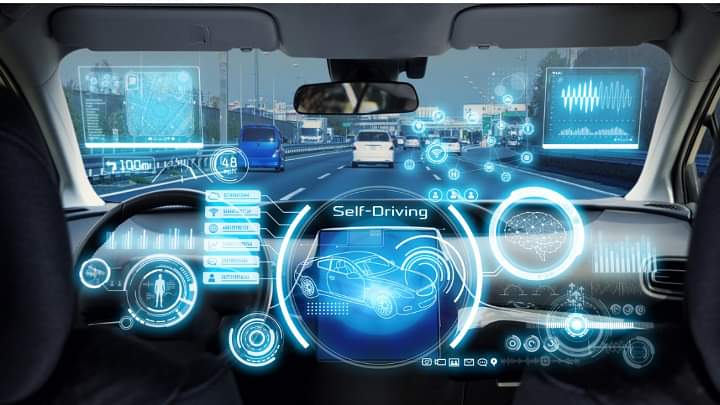
Technology has taken a huge leap over the years in terms of automotive fads and gadgets. Entirely mechanical entities transformed into electromechanical systems and have now been connected with the internet and other technology. With the significant evolution of automobiles, they are now equipped with connected car technology. These might sound like fancy features but they prove to be a lifesaver in many situations and are a boon for many people in case of emergencies. So, here is a comprehensive guide on the pros and cons of connected car technology.
Connected car technology is simply digitising automotive technology with a tincture of internet based features. These are presented by multiple automotive manufacturers with different names to differentiate the level of evolution of technology. On the whole, these features include Road Side Assistance, Vehicle tracking, Emergency SOS support, diagnostic report logging and sharing, and much more.
Pros:
- Safety: With all the data being fetched and delivered from and to servers, the level of advancement has been customised to recognise different incidents on the basis of the data itself. This is also known as the internet of things. Technological advancements have helped to identify incidents automatically with the help of data being uploaded on servers. This means if you meet with an unfortunate incident on road, the vehicle would automatically send signals to various authorities and reach out for help.
- Remote Diagnostics: In modern vehicle technology, you no longer need to take your car to the service centre for the diagnosis of faults. All fault reports and diagnostic logs are stored and uploaded to servers with your vehicle's VIN number on the track records thus helping for remote diagnosis. This technology is being featured in a few vehicles in India and we are hopeful for it to be introduced in more vehicles in future.
- Emission Control: The vehicles equipped with an internal combustion engine require a proper emission control system to run on the road so as to comply with the emission regulations in a particular region or country. As all systems like EGR (Exhaust Gas Recirculation), Catalytic Converters, Particulate Filters etc. are operated using complex electronics and software, these components can be controlled by the respective manufacturers to curb pollution accordingly. Technology giants are able to log emission data remotely which helps to access the health and the carbon footprint of an internal combustion vehicle on the whole. Therefore, connected car technology helps to curb pollution as well!
- OTA Updates: In the good olden days, we had to spend huge loads of money so as to upgrade our vehicles in any sense, be it Engine Or Transmission Control Unit software, infotainment system upgrades and what not. Nowadays, almost all vehicles are offered with Over The Air (OTA) Updates so as to keep the car up to date.
- GPS integration: GPS systems are something we are familiar with since long as we all have to use Google Maps, Apple Maps, Waze etc. to travel from one place to another. Alongside, the vehicles are also supplied with a GPS module which helps to spot the location of the vehicle and keeps it updated on different servers. This has also opened up the scope for introducing traffic management systems in advanced cities where traffic lights are controlled on the basis of traffic feedback from these systems.
- Geofencing and Tracking: As vehicles are equipped with connected car technology, the details of your vehicle can be browsed using your phone and this does come with many features handy like remote start and AC control which helps you save yourself from the scorching heat. Moreover, these systems have also introduced geofencing and tracking where you can set up alerts for the live location of your vehicle. This has also helped to avoid theft at many stages as the owner is aware of his vehicle's location and is notified at any suspicious attempt.
- Research And Development: Automotive manufacturers develop products with a significant amount of research. To drive the end results towards perfection, they need a particular set of data and so as to increase precision, connected car technology helps to increase this data set to a huge extent.

Also Read: Volkswagen Connected Car Tech Launched For Polo and Vento - All Details
Cons:
- Security: As vehicles have now been digitised with the internet, all the data is uploaded to servers. This crucial information includes driving patterns, statistics, locations and much more. Server-based information can be hacked due to inadequate security and hackers can take over vehicle control and cause problems for the end user.
- Technological Over advancement: Connected car technology does have its advantages but many features are pretty useless for Indian roads due to the lack of traffic rules and fully developed road infrastructure.
- Complications: Gone are the days when you were able to hand over your vehicle to an elderly person without any worries in mind. Now, they have to be educated about every feature as they might be left stranded in the middle of the road if they click something mistakenly. Moreover, automotive manufacturers have proprietary technology which causes non-uniformity while using several features.
- Cost: As technological advancements come at a cost, automotive manufacturers in India release several packages to sell out this connected car technology as it is treated to be a luxury at an additional cost in India.
- Mobile Data Network: All these systems being linked to the internet require a proper internet connection. Hence, there might be situations when you won't be able to access specific features if you are in a region with a weak mobile data network connection.
- Development Time: The OTA updates boasted by many manufacturers do take time to be developed, tested and released. In many situations, automotive manufacturers roll out updates and many things tend to go wrong with a perfectly running vehicle as everything is now related to software. A small bug in the codes can make a huge difference in functionality and can be fatal on road.
Also Read: 2020 Hyundai Verna Gets BlueLink Technology; First Mid-Size Connected Sedan
As every technological advancement comes with its own unique set of boons and banes, all automotive manufacturers are striving to eliminate the backlashes from connected car technology as it has become a part of the lives of their users and it has proven to be a promising technology in many developed countries as well! A few vehicles with connected car technology available in India are the Hyundai i20 with Bluelink technology, Maruti Suzuki Ignis and Baleno with Suzuki Connect and Tata Altroz with Tata iRA.

